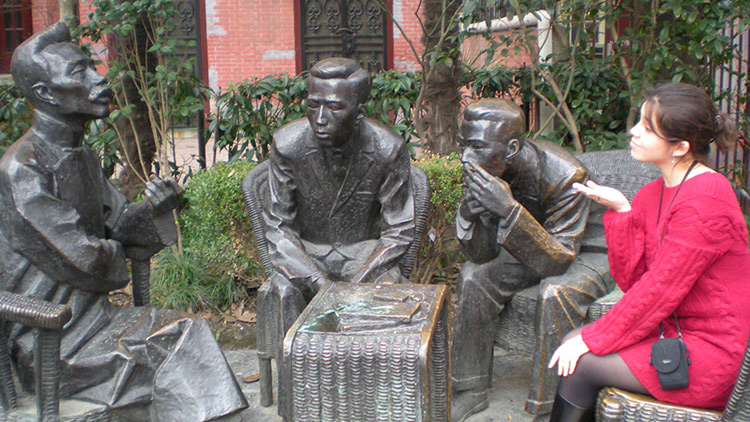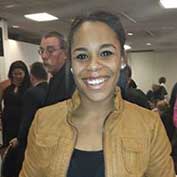 SUPPORTED IN HER SUCCESS—Dr. Gina Russo Tam '08 received a Phi Kappa Phi study abroad scholarship while at IUP, spending a year at the Chinese University of Hong Kong. She's now an Assistant Professor at Trinity University in Texas.
SUPPORTED IN HER SUCCESS—Dr. Gina Russo Tam '08 received a Phi Kappa Phi study abroad scholarship while at IUP, spending a year at the Chinese University of Hong Kong. She's now an Assistant Professor at Trinity University in Texas.
History generates exciting opportunities
History fascinates because it shapes the future yourfuture. A grasp of global history provides the insights needed to engage modern developments and conflicts in a mature manner. Perspective is what gives you the confidence to become an excellent journalist, archivist, attorney, or educator.
History repeats in one very important way: new opportunities continue to emerge. Many jobs often require skills that are the product of a history degree: the ability to formulate and present an argumentoral or written - in a reasoned and logical way. Get on board with modern life by absorbing the lessons of the past.
Why history?
The need to understand the past is universal. Nations eagerly study previous empires to inform important decisions. People pore over genealogy to define their heritage and purpose in life. Without historical data and stories, each dawning day would be rife with mystery and consternation. History is the collective knowledge of mankind. The earliest chronologies offer signposts, methodologies and warnings.
The world needs history majors
Historians are authorities on events relating to the development of the human race. Their insights are needed to shape young minds, guide business and government decisions, or solve complex legal issues. Historians don't merely report numbers, names, and dates. Often they are asked to provide ideas from the past and assess the present and future. Therefore, a history professional must:
- Understand the motives of history's memorable figures.
- Remain even-handed when studying new findings.
- Discern speculation from fact.
- Weigh the authenticity of differing points of view.
Expected outcomes with a bachelor's degree in history
Every history major receives a broad liberal arts background that stresses writing skills and the ability to formulate a presentation based on logic and solid research. Many different courses and histories are taught at IUP, as the department believes that a global historical understanding is essential for the future of civilization.
- Study ancient civilizations as well as more recent historical people, places, and events.
- Choose from areas such as public history, digital history, Colonial America, Medieval Europe, the Byzantine Empire, Ancient Greece, Early China, the Civil War, Russia, and the Middle East.
- For the pre-law track, take courses in business, criminology, economics, history, philosophy, and political science.
- Take advantage of IUP's extensive teacher-training program.
- Free electives enable you to take a minor such as Asian Studies, Latin American Studies, Pan-African Studies, or Women's Studies.
The IUP Difference
History faculty. It all begins with a unique faculty. Would you like to speak with a professional who spent the summer in Cyprus on an archeological dig? Conducted research abroad or at prestigious centers/institutes in the U.S.? Or won a Fulbright Fellowship? Come meet our history faculty.
Internships.Internships are an increasingly important focus for this department because they link study to real careers. For example, one of our students was recently placed with the National Archives and Records Administration.
Career advisement. You'll receive excellent nuts-and-bolts guidance from the first day of class. IUP helps you plan now for a real job. Key decisions early in your academic career will save time and avoid frustration.
State-of-the-Art Labs. The Irwin Marcus Public History Room is designed to provide students with hands-on training using the latest software and equipment in the fields of Public History, Oral History, and Digital History. It also allows history majors the opportunity to work with historical documents, artifacts, and archival materials as they learn how to curate historical collections.
